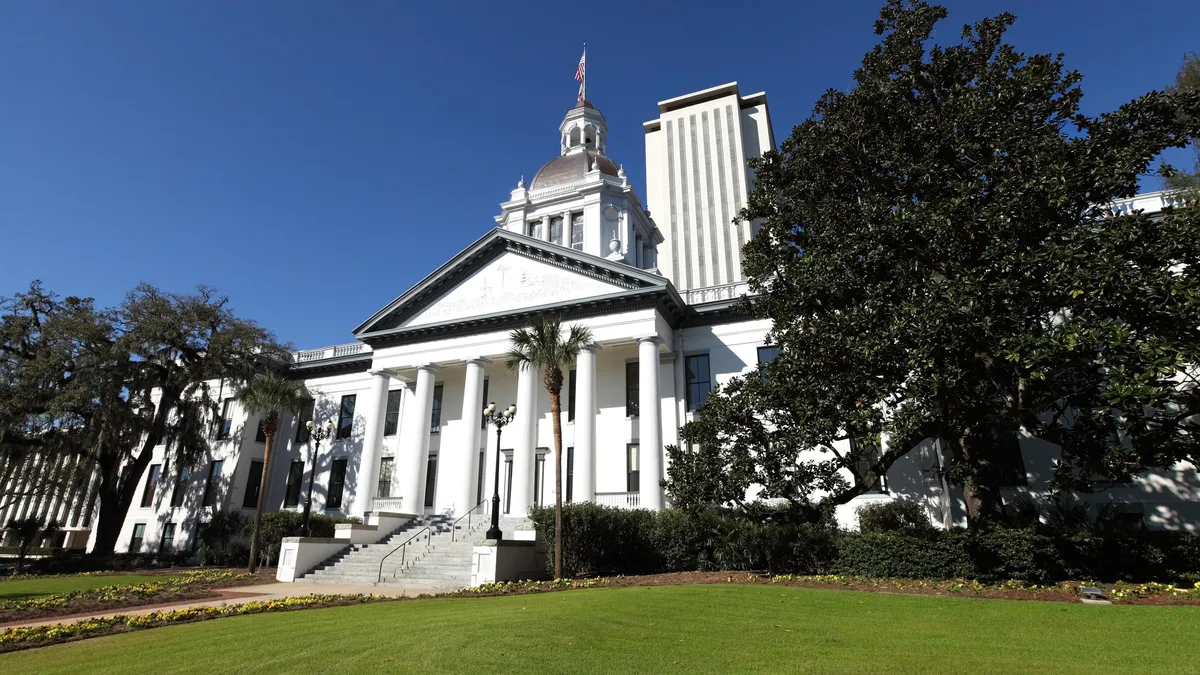Dive Brief:
- Florida Gov. Ron DeSantis on Tuesday approved SB 676, which requires delivery aggregators to obtain the consent of restaurants before listing them, and de-list restaurants that ask to be removed within 10 days, among other measures, public records show.
- Beginning July 1, 2025, delivery aggregators in Florida must offer a way for restaurants to contact customers during the preparation of orders, during delivery and for up to two hours after a courier picks up the order. Firms must also have a way to respond to customer ratings and reviews, according to the text of the law. The law also stipulates delivery firms must provide consumers with a way to express order concerns to the restaurants.
- The law states “regulation of food delivery platforms is expressly preempted to the state,” which gives Florida broad authority to determine or limit how cities regulate third-party delivery apps.
Dive Insight:
Uber Eats and DoorDash both backed SB 676, company representatives told Restaurant Dive.
“We're pleased that Florida policymakers took a collaborative approach on how platforms like DoorDash can support local restaurants and passed this bill,” a DoorDash spokesperson said.
Miami-Dade County attempted to pass a law last year that “would have required the delivery platforms to share [the] contact information of the consumer with some merchants or data aggregators,” said Javier Correoso, Uber’s head of policy and communications for its U.S. South market.
By contrast, SB 676 allows delivery aggregators to retain control of that valuable customer data, and prevents municipalities from changing that. While Correoso framed this as a common sense privacy protection measure, there are legitimate reasons why data and contact information are a point of contention between merchants and aggregators. Such information is useful for marketing, and third-party delivery aggregators stand as a layer between customers and restaurants, allowing them to collect contact information which restaurants would themselves collect in the case of first-party delivery orders.
Uber Eats, Correoso said, will provide restaurants with a method to contact their consumers similar to the means by which Uber rideshare drivers can get in touch with customers.
“Whenever you [have] got to get a hold of your courier or your Uber driver on the rideshare side, where all this information is anonymized, so if you call your Uber driver, he doesn't see your phone number,” Correoso said. “All of these communications [between restaurants and customers] will take place in the app.”
The preemption of local regulation, Correoso said, also means that Florida will have one consistent set of regulations, rather than a geographical patchwork of local and county laws, which would make compliance difficult and expensive.
Correoso said the bill was the result of political collaboration between the Florida Restaurant and Lodging Association and delivery aggregators. That partnership developed out of the working relationship established between the delivery giants and the restaurant trade groups during the early months of the COVID-19 pandemic, he said.















